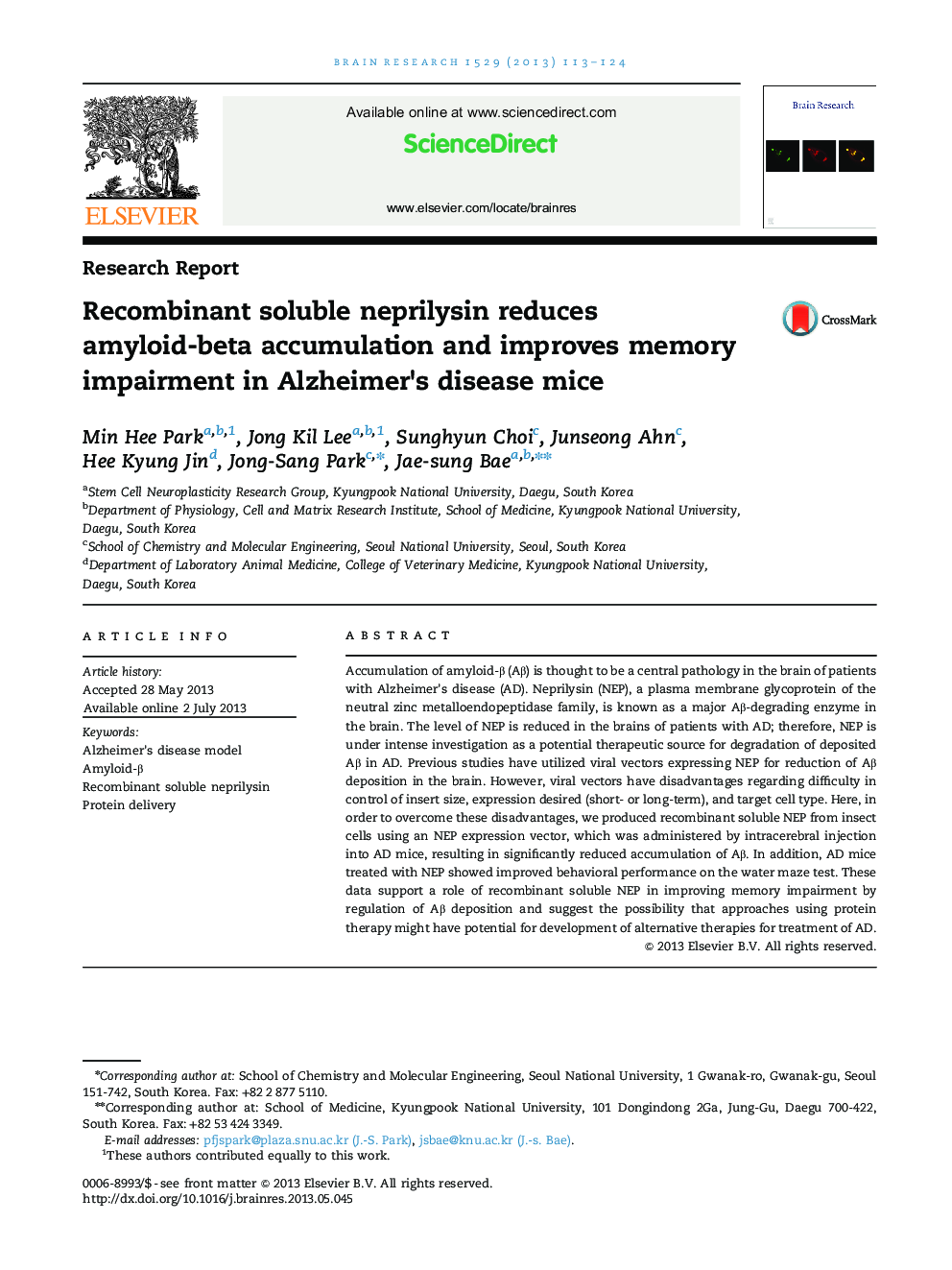| Article ID | Journal | Published Year | Pages | File Type |
|---|---|---|---|---|
| 6263773 | Brain Research | 2013 | 12 Pages |
â¢We produced recombinant soluble NEP from insect cells.â¢Intracerebral NEP injection reduced accumulation of Aβ in AD mice.â¢Intracerebral NEP injection showed improved memory impairment in AD mice.â¢Our results suggest protein therapy might lead to alternative therapies for treatment of AD.
Accumulation of amyloid-β (Aβ) is thought to be a central pathology in the brain of patients with Alzheimer's disease (AD). Neprilysin (NEP), a plasma membrane glycoprotein of the neutral zinc metalloendopeptidase family, is known as a major Aβ-degrading enzyme in the brain. The level of NEP is reduced in the brains of patients with AD; therefore, NEP is under intense investigation as a potential therapeutic source for degradation of deposited Aβ in AD. Previous studies have utilized viral vectors expressing NEP for reduction of Aβ deposition in the brain. However, viral vectors have disadvantages regarding difficulty in control of insert size, expression desired (short- or long-term), and target cell type. Here, in order to overcome these disadvantages, we produced recombinant soluble NEP from insect cells using an NEP expression vector, which was administered by intracerebral injection into AD mice, resulting in significantly reduced accumulation of Aβ. In addition, AD mice treated with NEP showed improved behavioral performance on the water maze test. These data support a role of recombinant soluble NEP in improving memory impairment by regulation of Aβ deposition and suggest the possibility that approaches using protein therapy might have potential for development of alternative therapies for treatment of AD.
